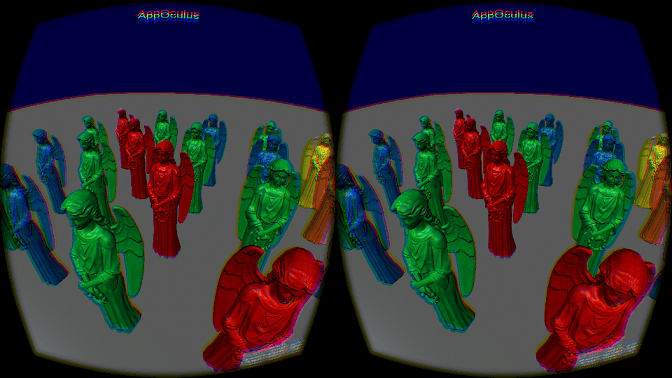app_oculus_00
This article describes the data/samples/plugins/app_oculus_00.cpp sample.
The app_oculus_00 sample demonstrates how to get access to the functions of the AppOculus plugin and then set the world scale (via engine.oculus.setPositionScale()). Also the example shows how to recenter the sensor orientation when the r key is pressed.
To run the sample, perform the following:
- Get and set up Oculus Rift PC Runtime.
- In UNIGINE SDK Browser, go to the Options tab and set the Stereo 3D option to Oculus Rift.
- Go to the Samples -> UnigineScript -> App and run the sample by clicking Run.

AppOculus plugin sample
See Also
- Article on the AppOculus plugin
Last update: 2018-08-10
Help improve this article
Was this article helpful?
(or select a word/phrase and press Ctrl+Enter)